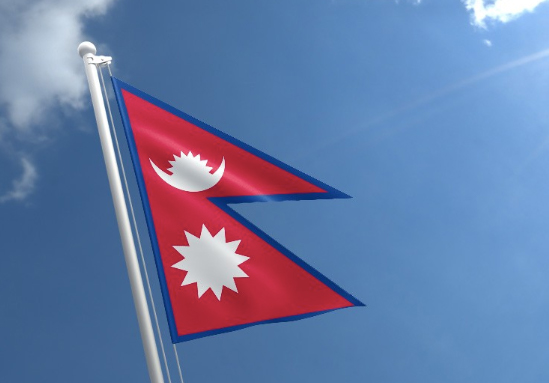
Oct 16, 2023 | News
Judges and Prosecutors in Nepal have taken up the challenge to step up their efforts to ensure that victims and survivors of human rights violations are able effectively to access justice.
At a Judicial Dialogue convened by the International Commission of Jurists (ICJ) and Advocacy Forum Nepal (AFN) in collaboration with Judges Society Nepal (JSN) on 15 – 16 September 2023, judges and prosecutors from district and high courts in Gandaki Province in Nepal attended and assessed the challenges faced by victims and survivors in the context of the stalled transitional justice process which followed from the end of Nepal’s internal armed conflict in 2006.
The Government of Nepal has made repeated commitments to ensure access to justice and the Supreme Court of Nepal has affirmed that the authorities have firm legal obligations to act in the transitional justice process. Participants considered that there had been serious undue delay in the Nepalese TJ process over years, which have included ineffective commissions, non-implementation of court rulings and a failure to take into account the voices of victims of human rights violations. There was therefore a pressing need for judges and public prosecutors to play a more proactive role in order to address conflict-era gross violations delivering justice for the victims of the violations.
ICJ Commissioner and former Chief Justice of the Supreme Court of Nepal Kalyan Shrestha, emphasized that it was indispensable to adhere to international and domestic human rights law, including the jurisprudence of the Supreme Court. He expressed concern that adjudication of conflict-related cases had been significantly delayed, resulting in a prolonged wait for justice for the victims of human rights violations. Justice Shrestha also underscored the need for Nepal’s judiciary and public prosecutors to effectively fulfill their responsibilities and ensure justice for victims of human rights violations, in accordance with a well-developed body of jurisprudence on justice in the transitional context.
Justice Ishwor Khatiwada of the Supreme Court of Nepal reviewed the status of human rights guaranteed under the Constitution of Nepal. More than a thousand cases related to conflict-era human rights violations have been pending at different courts, and there was no law that restricts courts/judges from deciding the cases of human rights violations from conflict. The Government of Nepal had been refusing victims of conflict access to regular justice system arguing that they will be provided justice by transitional justice mechanisms. However, these promised TJ mechanisms had not been established even more than a decade and a half after signing the Comprehensive Peace Agreement (CPA), making commitments to create these mechanisms.
Justice Ananda Mohan Bhattarai, Justice of the Supreme Court of Nepal highlighted that jurisprudence established by the Supreme Court mandated a robust role of the judiciary in assessing the implementation of its jurisprudence.
Mandira Sharma, ICJ Senior Legal Advisor, provided insights into the global context of transitional justice and discussed the challenges, lessons learned, and good practices.
High Court Judge Tek Prasad Dhungana, General Secretary of Judges Society Nepal presented the objectives of the dialogue, which was chaired by Mr. Baburam Regmi, Acting President of Judges Society Nepal and former High Court Judge and facilitated by Kathmandu District Court judge Raju Kumar Khatiwada.
Contact:
Dr Mandira Sharma, ICJ Senior International Legal Adviser, t: +9779851048475, e: mandira.sharma@icj.org
Kashiram Dhungana, ICJ Legal Adviser, Nepal, t: +9779851226964, e: kashiram.dhungana@icj.org
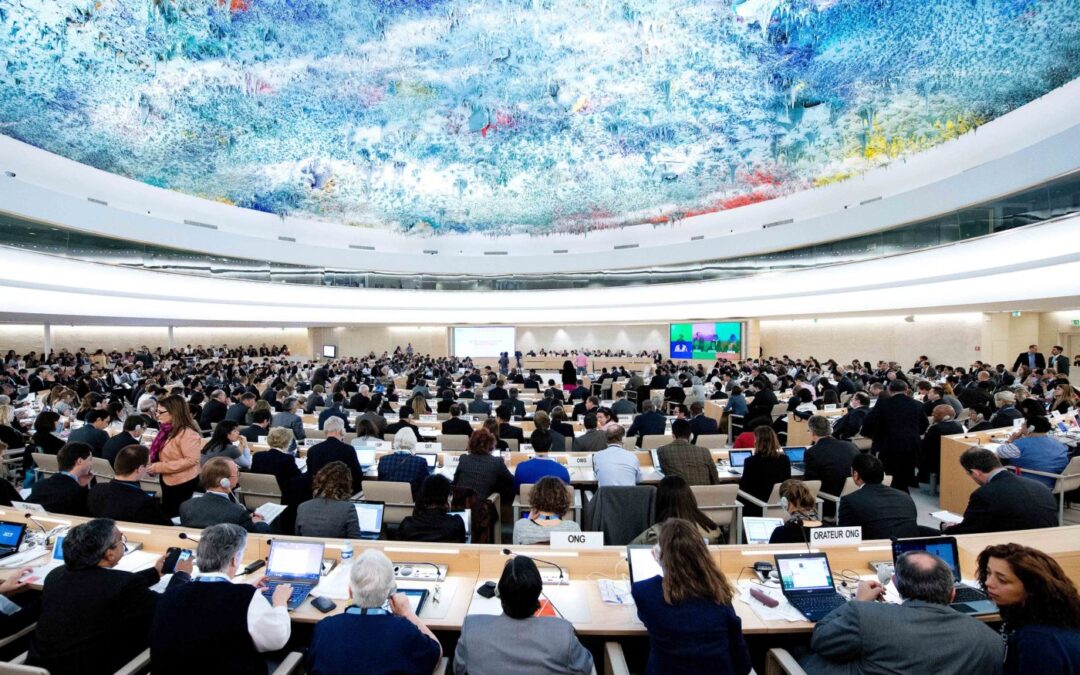
Oct 11, 2023 | Advocacy, News
The International Commission of Jurists (ICJ) called the Human Rights Council’s (HRC) attention to the entrenched pattern of human rights violations in Cambodia, and called on the HRC to adopt a resolution to extend the Special Rapporteur’s mandate and ensure it has adequate resources and support.
Oral statement of the International Commission of Jurists (ICJ) during the Interactive Dialogue with the Special Rapporteur on the situation of human rights in Cambodia
“Madam Vice President,
The International Commission of Jurists (ICJ) concurs with the Special Rapporteur’s assessment that Cambodia has largely failed to implement the 20 human rights-related benchmarks proposed in his previous report to this Council.
In the lead-up to the national elections, there was a rapid escalation of the human rights and rule of law crisis in Cambodia. Human rights defenders and political opponents were convicted based on non-human rights compliant laws for exercising their right to freedom of expression, both online and offline, with new draconian laws on cybercrime and cybersecurity being drafted and considered.
The authorities have arbitrarily revoked licenses and blocked online access to independent media outlets without due process. The government at the highest level has employed rhetoric, reproduced online, to threaten and incite violence against political opponents with impunity, with credible reports of actual physical violence as an apparent consequence.
This systematic disregard for Cambodia’s international human rights obligations has been further exacerbated by the absence of an independent and impartial judiciary. The convictions of human rights defenders and political opponents were frequently accompanied by massive fair trial violations, including the effective application of a presumption of guilt.
It is imperative that the Council responds decisively to reverse this entrenched pattern of human rights violations in Cambodia by adopting a resolution to extend the Special Rapporteur’s mandate and ensuring it has adequate resources and support.
Thank you.”
Contact
Sandra Epal Ratjen, ICJ UN Representative and Senior Legal Adviser, e: sandra.epal@icj.org
Daron Tan, ICJ Associate International Legal Adviser, e: daron.tan@icj.org
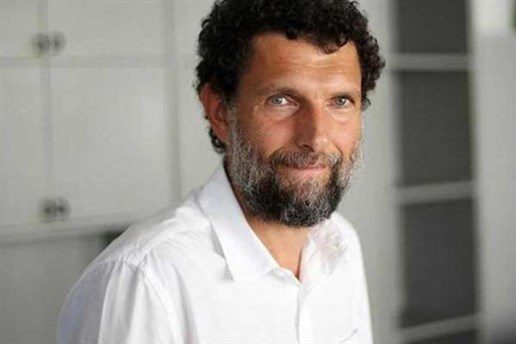
Oct 10, 2023 | News
The prosecution of the rights defender and businessman Osman Kavala and four codefendants in connection with mass protests a decade ago has been unfair and essentially a political show trial from the beginning, a group of nine non-governmental organizations including the International Commission of Jurists (ICJ) said today, ahead of an October 12 urgent debate calling for Kavala’s release at the Parliamentary Assembly of the Council of Europe. The five have been punished for the legitimate exercise of their rights to freedom of expression, association and peaceful assembly.
On September 28, 2023, Turkey’s Court of Cassation, its top appeals court, upheld the convictions, notwithstanding that the European Court of Human Rights has previously found no basis for detention or trial, and ordered Kavala’s immediate release.
“By ignoring these judgments and Turkey’s human rights obligations, the Court of Cassation is doubling down on the deep injustice of this case that dramatically demonstrates how far Turkey has deviated from the rule of law,” said Helen Duffy of the Turkey Human Rights Litigation Support Project. “The trial has not only led to grave violations of the rights of Kavala and the others, but it provided a chilling example of how Turkey’s justice system has become a tool of political repression.”
Although President Recep Tayyip Erdogan and Turkish government officials repeatedly state that Turkish courts are independent, the trial of Kavala and his codefendants exposes those claims for the falsehood they are, and demonstrates how in key cases of interest to the president, prosecutors and courts blatantly do his bidding.
Kavala was sentenced to life in prison without parole, convicted of attempting to overthrow the government on false allegations that he organized and financed the 2013 Istanbul Gezi Park protests against a government urban development project. Four codefendants – Çiğdem Mater, Can Atalay, Mine Özerden and Tayfun Kahraman – received 18-year sentences for allegedly aiding Kavala, while the court quashed the 18-year sentences of Mücella Yapıcı, Hakan Altınay and Yiğit Ekmekçi, and ordered Yapıcı and Altınay’s release pending retrial.
“This trial cynically opened six years after the Gezi Park protests with the malevolent intent of casting them as the outcome of a grand conspiracy by one man, Osman Kavala,” said Hugh Williamson, Europe and Central Asia director at Human Rights Watch. “To achieve this the prosecution and the courts blatantly had to ignore all the evidence of spontaneous mass protests in which the vast majority of protesters committed no violence and exercised their lawful rights to freedom of expression and assembly.”
The Court of Cassation’s 78-page verdict simply reiterates the prosecution’s allegations in the February 2019 indictment, though the European Court of Human Rights ruled twice that the indictment offered insufficient evidence to justify Kavala’s detention, prosecution or conviction, and by inference, the other defendants’.
Notably, in a striking rebuke to the European Court of Human Rights, Council of Europe, and Turkey’s human rights obligations, the Court of Cassation makes no reference to the repeated findings against Turkey in this case. In December 2019, the European Court ordered Kavala’s immediate release, and in February 2022, the Committee of Ministers of the Council of Europe, the body responsible for overseeing implementation of European Court judgments, took the almost unprecedented step of triggering infringement proceedings against Turkey for its refusal to comply.
This led to a second European Court of Human Rights judgment condemning Turkey’s failure to carry out the first, and the failure of the Turkish court convicting Kavala and others on April 25, 2022, to recognize the European Court of Human Rights’ judgment. The Court of Cassation decision doubled down on that rejection of the European Court’s role, with no mention of that judgment.
Turkey’s European and international allies, both unilaterally and through intergovernmental organizations, including the Council of Europe, the European Union, and the United Nations, should address this injustice as a matter of urgency. They should treat the case as a priority human rights matter in their mutual relations with Turkey, and push for the swift and full implementation of the European Court’s’ judgments, including for the defendants’ immediate release.
They should firmly condemn the abuse of criminal law against activists, human rights defenders, journalists and others in politically motivated cases. Robust efforts are essential to ensure that Turkey respects and abides by its human rights obligations and rule of law principles, which are currently being flouted with impunity.
In turning a blind eye to the Strasbourg court’s rulings, the Court of Cassation is also ignoring its constitutional obligation to ensure that Turkey adheres to binding decisions of the European Court, which take precedence over rulings in Turkey’s domestic courts.
“In direct contravention of its legal obligations under international law, the Court of Cassation has chosen to maintain convictions despite the European Court of Human Rights judgment ordering Kavala’s immediate release,” said Temur Shakirov, ICJ Europe and Central Asia Director (ad interim). “By failing to adhere to its obligations, the Court of Cassation sets a precedent, eroding confidence in the legal system’s ability to act as an independent and impartial institution, separate from political influence and committed to upholding human rights and the rule of law.”
The Court’s Flawed Reasoning
In its September 29 decision, the Court of Cassation relies on a chronology of events from the February 2019 indictment that the prosecution argues constituted the preparation for the Gezi protests. This included making a short video with a group of actors in 2011 called “Rise up Istanbul,” production of a play in Istanbul about a dictator, which ran from 2012-13, and the 2012 establishment of the civil society platform, Taksim Solidarity, focused on the highly contested plan to develop Taksim Square and Gezi Park. The court fails to show any causality between these lawful activities and any crime or to provide any evidence that these activities showed that Kavala and the other defendants were involved in a conspiracy.
The court decision makes reference to the protests and popular uprisings in various Middle Eastern countries that predated the Gezi protests and came to be known as the Arab Spring, and nonviolent civil disobedience movements such as OTPOR in Serbia a decade earlier, without showing their relevance to the case.
The decision names civil society organizations and alleges they “supported and directed” the Gezi Park protests without providing any credible evidence. Chief among them are the Open Society Foundations, set up by the US financer and philanthropist George Soros, and the affiliated but independent (and now dissolved) philanthropic foundation in Turkey (Açık Toplum Vakfı). Kavala was a founding member of the group, and Altınay served for a period well before the Gezi Park protests as director of the board.
The court repeats a conspiracy theory, informed by antisemitic tropes, from the original indictment that Soros’s organizations aimed to overthrow governments in various countries by encouraging uprisings, and that the Turkish Open Society Foundation and Kavala were involved in this process under the guise of innocent-looking philanthropic activities.
Kavala’s own civil society group, Anadolu Kültür A.Ş., which supports the arts, was also named. The other defendants were linked to Kavala through their participation in that organization: film producer Çiğdem Mater, employed as an advisor, Mine Özerden, a member of the board, and Yiğit Ekmekçi, deputy head of the board. Taksim Solidarity is named as the group in which three defendants – lawyer Can Atalay, city planner Tayfun Kahraman and architect Mücella Yapıcı – participated actively.
The Court of Cassation endorses the indictment’s inclusion of Kavala’s contacts with bodies such as the European Commission, members of the European Parliament, diplomats, diplomatic missions and international human rights groups, as evidence of alleged efforts to influence international opinion against the Turkish government.
A section on the alleged protest financing cites the Open Society Foundations’ funding of the Turkish Open Society and Anadolu Kültür, but it omits that a formal investigation into the funding cited in the indictment (the MASAK report) found no evidence of unaccounted for money transfers. Instead, the court relies on examples drawn from wiretapped conversations, of Kavala once bringing people camped in the park a few bread rolls, talking about obtaining a plastic table for use in the park, and where to buy masks and goggles to protect from police tear gas.
The court decision also allows as admissible evidence a mass of random wiretapped conversations between the defendants and others that were illegally obtained. Far from revealing any criminal activity, the conversations show that the defendants were lawfully engaged in civil society organizations and nonviolent activism, and were exercising their rights to free speech, association, and assembly. Such activities are strictly protected under international law, including treaties to which Turkey is a party such as the European Convention of Human Rights and the International Covenant on Civil and Political Rights, as well as in Turkey’s own laws.
The decision rejects parliamentary immunity from prosecution for one of the defendants, Atalay, a lawyer and activist who won a seat in the May 2023 parliamentary elections on behalf of the Workers’ Party of Turkey. The Court of Cassation decided that he was not protected by parliamentary immunity under article 83 of Turkey’s Constitution in relation to this case confirming its own July 13 decision on the matter, and upheld his conviction. In reaching this conclusion, the Court of Cassation rejects the case law of the Constitutional Court, given under identical conditions, in judgments related to other jailed parliament members, Ömer Faruk Gergerlioğlu and Leyla Güven, which held that they do have immunity and that arresting, prosecuting, and detaining them constitute very serious violations of that immunity.
The nongovernmental organizations who signed the statement are:
- Amnesty International
- ARTICLE 19
- Human Rights Watch
- European Democratic Lawyers (AED)
- European Lawyers for Democracy and Human Rights (ELDH)
- International Commission of Jurists
- International Federation for Human Rights (FIDH)
- PEN International
- Turkey Human Rights Litigation Support Project.
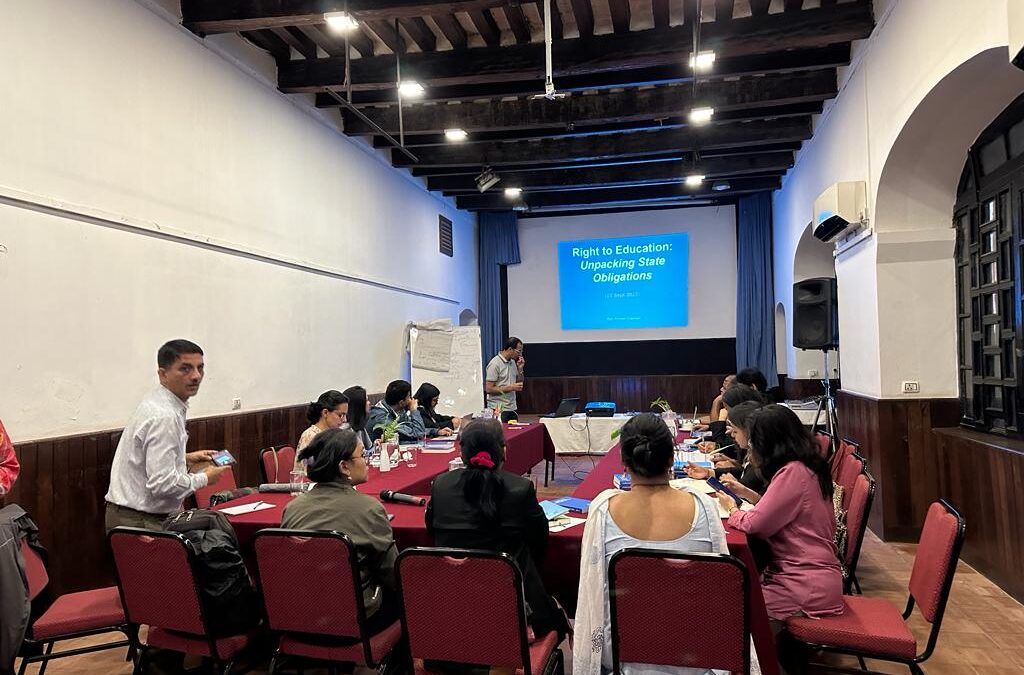
Oct 10, 2023 | News
The International Commission of Jurists (ICJ), in partnership with the Economic, Social and Cultural National Network/Justice & Rights Institute Nepal (JuRI-Nepal), the Public Interest Litigation LawyersGroup (Nepalgunj), and the Privatisation in Education and Human Rights Consortium (PEHRC), has launched a mentorship program geared towards training young lawyers on international law and standards applicable to private actor involvement in education.
The 22 lawyers who will benefit from the programme are from Bagmati and Lumbini Province. To kick off the program, workshops were held on 23 September in Kathmandu and 28 September in Nepalgunj.
“We are delighted to initiate this mentorship program and are hopeful that it will be helpful to prepare a new set of human rights lawyers capable of and dedicated to advancing the realization of the right to education in Nepal in the context of burgeoning privatization,” said Karuna Parajuli, ICJ National Legal Adviser.
“The State has the primary role in guaranteeing access to education for all persons without discrimination of any kind. We hope that knowledge of their specific duties around will assist Nepali lawyers to identify issues and support their clients in enjoying their rights to education and ensuring effective and adequate regulation of private actors in education, added Parajuli.
Opening the workshop in Nepalgunj Judge Harka Bahadur Gurung emphasized the importance of these issues in the Nepali context:
“The current educational system in Nepal has segregated children as those going to high-fee private schools and others going to public schools with no basic infrastructure. Your litigation initiative should focus to remove this division and enable each student equal access to free and quality education”.
“The Constitution of Nepal guarantees education as a human right which is fully enforceable before Nepali Courts. This provides a strong avenue to initiate strategic litigation, which remains underutilized”, said ICJ’s Senior International Legal Adviser Mandira Sharma. “We encourage the mentees in this programme and Nepali lawyers more broadly to work towards crafting innovative advocacy strategies directed at fully realizing right to education in Nepal”, she concluded.
Contact
Dr Mandira Sharma, ICJ Senior International Legal Adviser, t: +9779851048475, e: mandira.sharma@icj.org
Karuna Parajuli, ICJ Legal Adviser, Nepal, t: +9779808431222, e: karuna.parajuli@icj.org
Further information
International law and standards on the right to education are spelled out in various treaties binding on Nepal such as the International Covenant on Economic, Social and Cultural Rights and the Convention on the Rights of the Child. Further detail on States’ obligations to restrict, regulate and monitor private actor involvement in education are further details in a range of standards including the general comments of UN Treaty Body Mechanisms and the Abidjan Principles on the human rights obligations of States to provide public education and to regulate private involvement in education.
Following the workshops, participants worked in groups to formulate an action plan for their mentorship period. They have been paired up with mentors (that include a senior advocate, senior litigating lawyers, and an ESCR expert). The mentorship program will run from October 2023 to March 2024.
The mentorship program is organized with the support of the Privatization in Education and Human Rights Consortium (PEHRC), an informal network of national, regional, and global organizations and individuals collaborating to analyse and respond to the challenges posed by the rapid growth of private actors in education from a human rights perspective and propose alternatives.
The main objectives of the mentorship program are to train young lawyers on how to utilize strategic litigation for claiming the right to education; expand their knowledge of international law (including Abidjan Principles) and share good practices on the right to education in other parts of the world.
Resources
https://www.icj.org/nepal-strategic-litigation-is-an-important-tool-to-ensure-compliance-with-international-human-rights-standards/
https://www.icj.org/late-as-usual-delayed-delivery-of-textbooks-infringes-the-right-to-education-of-nepali-students/
https://www.icj.org/nepal-icj-lawyers-workshop-discusses-strategic-litigation-to-enforce-the-right-to-education/
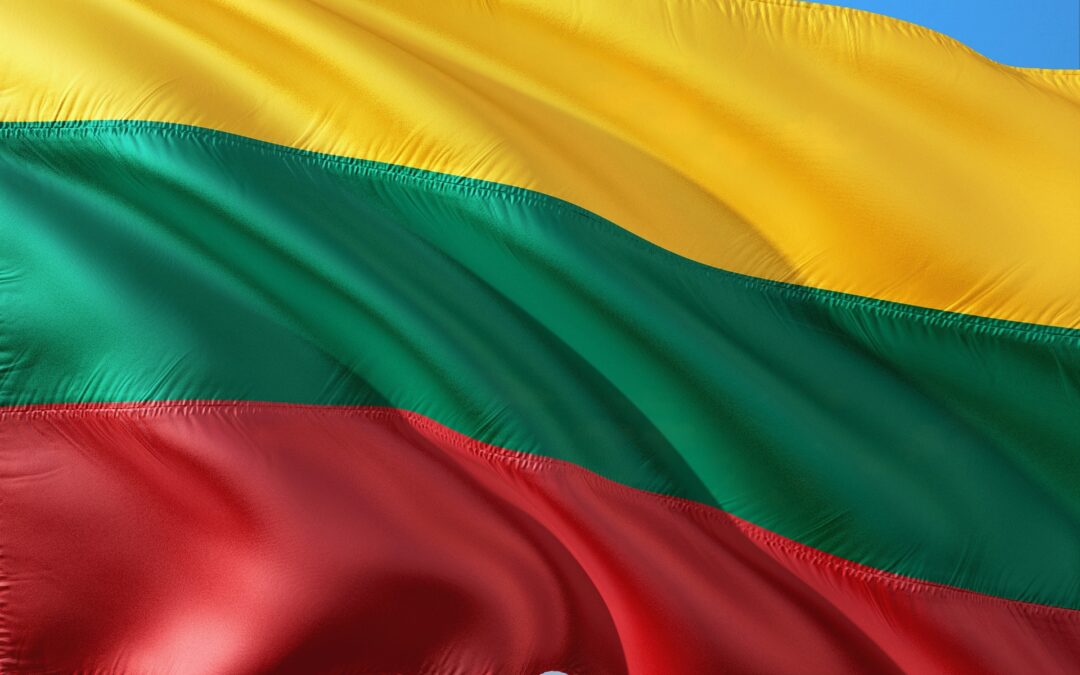
Oct 9, 2023 | Access to justice, Advocacy, Cases, News
Today, the International Commission of Jurists (ICJ), the AIRE Centre (Advice on Individual Rights in Europe), the Dutch Council for Refugees (DCR), and the European Council on Refugees and Exiles (ECRE), submitted a third-party intervention to the European Court of Human Rights in the case S.M.H. v Lithuania, concerning the deprivation of liberty of an asylum seeker.
S.M.H., an Iraqi citizen, who entered Lithuania irregularly and sought asylum, was subsequently arrested and detained in various centres. The applicant claimed that his detention was not justified, lacking both individualised assessment and effective legal assistance.
In its intervention, the ICJ and its partners focus on Article 5.1 and Article 5.4 of the European Convention of Human Rights (ECHR). In particular, the interveners analyse the requirements for lawful deprivation of liberty, the right to have the lawfulness of detention promptly examined by a Court, and the right to have effective legal assistance. The intervention considers both the EU and international law and standards related to deprivation of liberty and the right to an effective remedy against unlawful detention and material conditions of detention.
The key points of the intervention are as follows:
- The interveners submit that under Article 5.1 detention must not be arbitrary, and be prescribed by law both substantively and procedurally. The intervention highlights that detention must be a measure of last resort, it should follow an individualised and exhaustive examination, and it may be imposed only when less strict measures cannot be effectively applied.
- Regarding Article 5.4, the interveners clarify that an effective judicial review of detention prescribed by law and accessible in practice constitutes a safeguard against arbitrary detention. Legal aid and competent legal representation are essential elements in ensuring the accessibility and effectiveness of judicial review of the lawfulness of detention.
- Finally, the interveners stress that lack of access to clear information, lack of access to a lawyer, and lack of access to an effective remedy contravene the guarantees under Articles 3 and 13 ECHR, rendering them ineffective, theoretical, and illusory.
Read the full intervention here.









